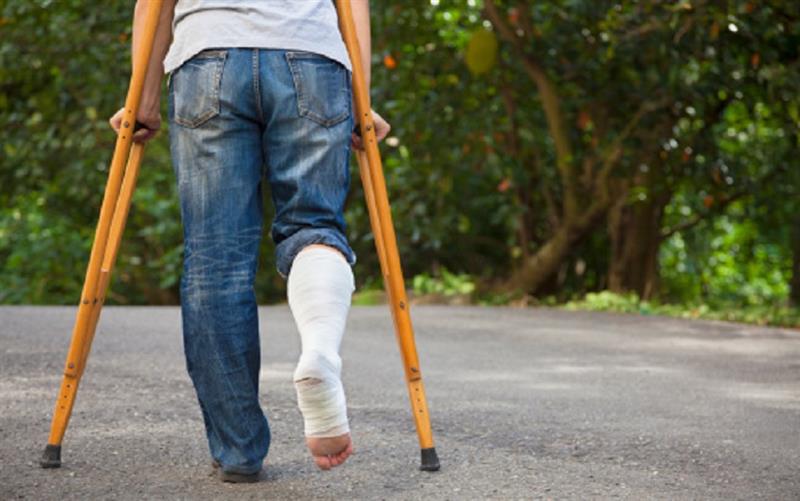
Walking is a fundamental aspect of human life. It's an ability that most of us take for granted until circumstances force us to reconsider. "Walking with Crutches" may not be something one aspires to do, but for many, it becomes a life-changing experience. Walking with crutches is indeed a life-changing experience. It's a journey that involves not only physical adaptation but also emotional growth and community support.
Walking with crutches is undoubtedly a life-changing experience. It may be an unexpected journey, but it can lead to personal growth, newfound strength, and the ability to overcome obstacles. By choosing the right crutches, learning proper techniques, seeking support, and staying positive, individuals can transform their lives and embrace a future full of possibilities.
The Importance of Mobility
Mobility is a cornerstone of daily life. It enables us to work, socialize, and enjoy our surroundings. Losing the ability to walk can be emotionally and physically challenging. Walking with crutches is often the bridge that helps individuals regain their independence and confidence.
1. Overcoming Challenges
Walking with crutches presents its own set of challenges. From navigating uneven terrain to handling everyday tasks, individuals using crutches need to adapt and find solutions. By sharing practical advice and solutions, we can help make the journey smoother.
2. The Emotional Journey
The emotional impact of relying on crutches is often underestimated. It can be frustrating, disheartening, and isolating. Coping with these emotions is part of the journey. It's essential to seek support from loved ones and professionals to address the psychological aspects of using crutches.
3. Assistive Devices and Innovations
Advancements in technology and assistive devices have significantly improved the crutch-walking experience. Innovations like ergonomic handles and shock-absorbing tips make crutches more user-friendly, providing enhanced comfort and safety.
4. Maintaining Independence
The ability to maintain independence is one of the most significant advantages of walking with crutches. With the right support and mindset, individuals can continue to perform daily activities and pursue their goals.
5. Support and Community
Support from friends, family, and the community is invaluable. Many organizations and support groups offer assistance, guidance, and a sense of belonging. Knowing you're not alone on this journey can be incredibly uplifting.
6. Staying Positive and Motivated
Staying positive and motivated is essential. Setting achievable goals and focusing on progress can make a world of difference. Readers are encouraged to stay determined and embrace the opportunities that come their way.
7. Enhanced Mobility
One of the most immediate and noticeable benefits of using crutches is the enhanced mobility they provide. People who may have struggled to move from one place to another due to injury, surgery, or a medical condition find that crutches empower them to be more mobile. This newfound mobility allows them to resume daily activities, such as getting to work, shopping for groceries, or even going for a leisurely stroll in the park.
8. Rehabilitation and Recovery
Crutches play a crucial role in rehabilitation and recovery. They are often recommended by healthcare professionals as part of the recovery process following surgery, fractures, or injuries. By providing support and stability, crutches enable individuals to gradually regain their strength and range of motion. This is essential for not only physical healing but also for rebuilding confidence.
9. Preventing Muscle Atrophy
When an individual is unable to use a limb due to injury or surgery, the muscles in that limb can atrophy over time. Crutches help prevent muscle atrophy by allowing controlled movement and weight-bearing, which keeps the muscles engaged and active. This is particularly important for long-term recovery and preventing further complications.
10. Building Resilience
Adapting to life with crutches requires resilience and determination. Individuals learn to overcome obstacles and face adversity head-on. This experience builds mental and emotional resilience, making them better equipped to handle life's challenges. Many people discover a newfound sense of inner strength they may not have realized otherwise.
11. Promoting Accessibility
The use of crutches also raises awareness about the importance of accessibility in public spaces. When people with mobility challenges use crutches, it becomes apparent where improvements are needed, such as ramps, elevators, and wider doorways. This, in turn, contributes to making public spaces more inclusive for everyone.
12. The Role of Occupational Therapy
Occupational therapy often goes hand-in-hand with using crutches. Occupational therapists help individuals adapt to their new mobility needs, ensuring they can perform daily activities with ease and confidence. This support is invaluable in helping individuals regain independence and functionality.
13. A Reminder of Empathy
Finally, walking with crutches serves as a reminder of the importance of empathy and understanding. It encourages others to be more considerate and compassionate towards individuals with mobility challenges. It reminds us all that a little kindness and assistance can go a long way in making someone's day easier and more pleasant.